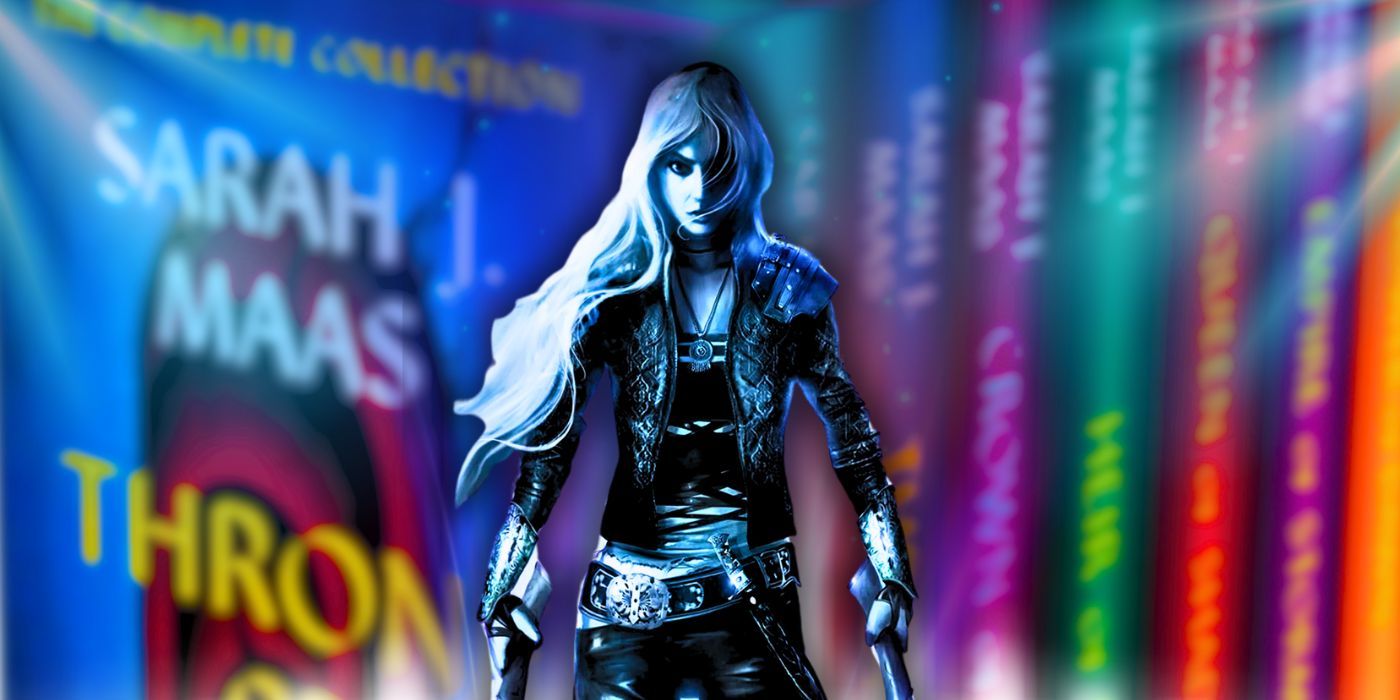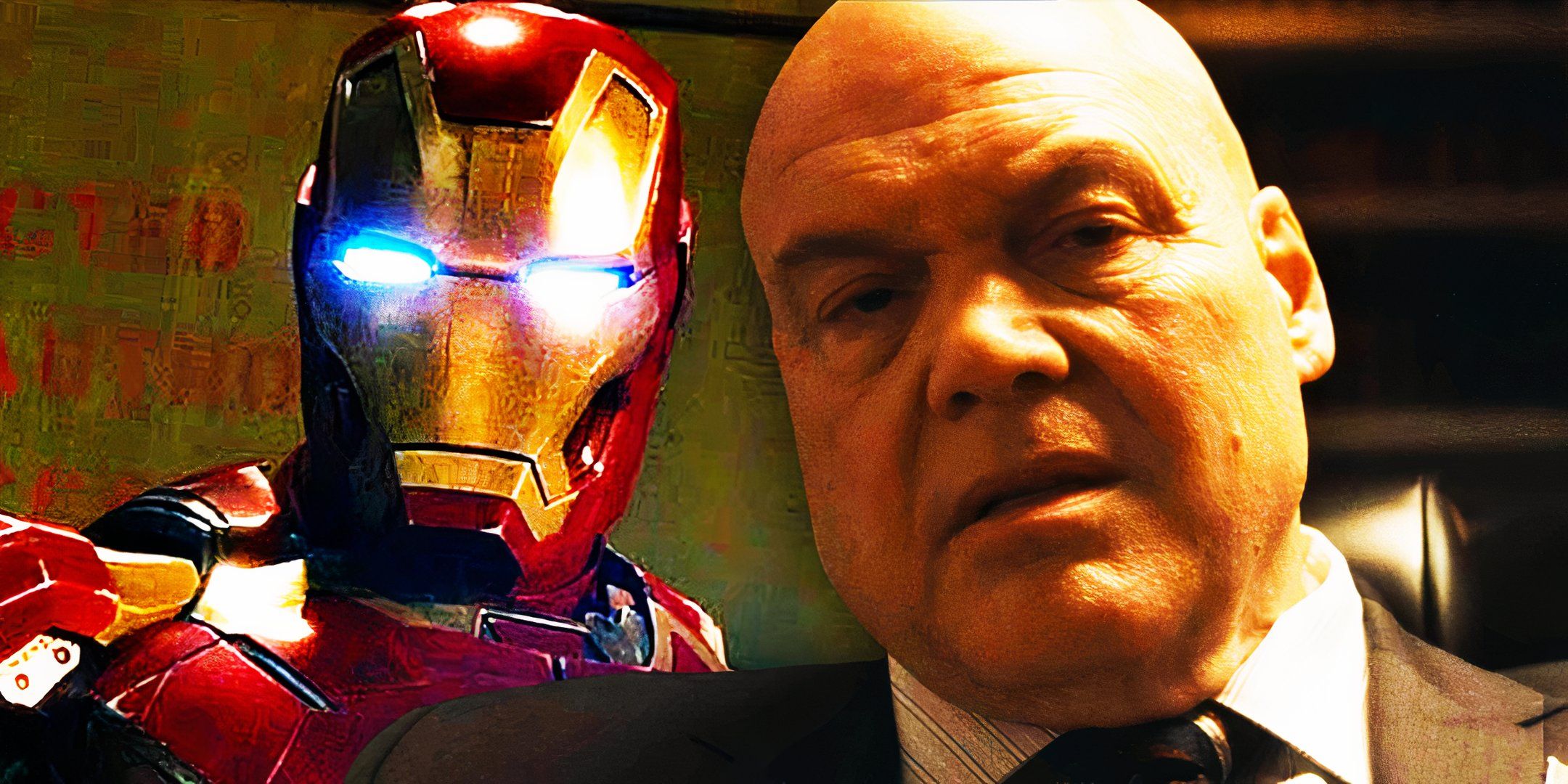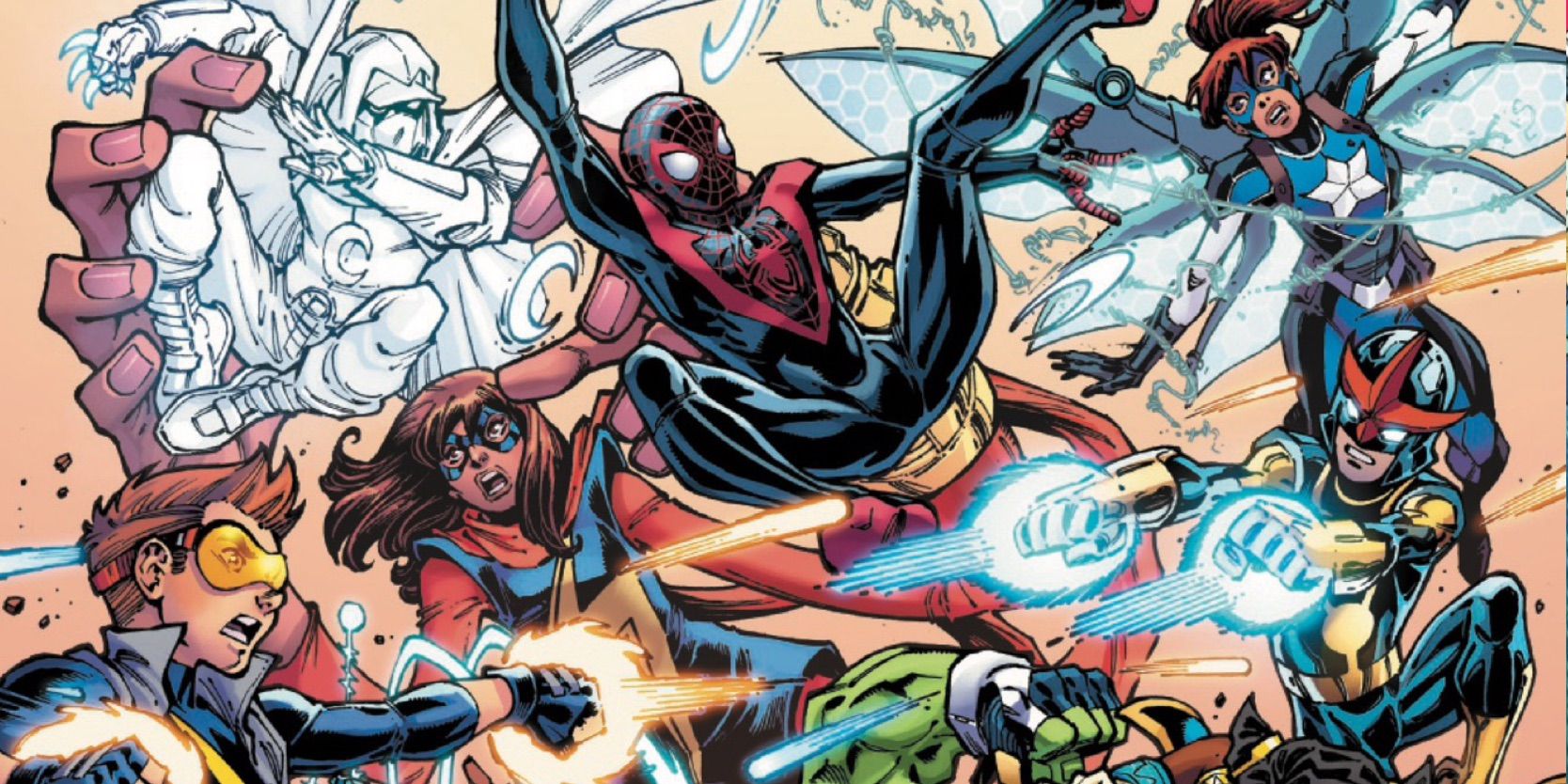10 Harsh Realities Of Re-Reading Throne Of Glass, 6 Years After It Ended
Warning: This list contains spoilers for all of Sarah J. Maas' Throne of Glass novels.
Summary Some of the characters in Throne of Glass demonstrate abusive behaviors and relationships that are not adequately addressed.
The scale of Aelin's godlike power is confusing when she can defeat Maeve without it.
Several overused tropes, such as fast marriages and long-lost heir storylines, detract from the overall quality of the series.
Sarah J. Maas' Throne of Glass is one of the most popular young adult fantasy book series of its time; however, there are some harsh realities of re-reading it. The Throne of Glass TV show adaptation has been in development for almost 10 years and does not seem to be moving forward anytime soon. However, if Hulu does eventually adapt the story, the producers and writers may make changes concerning some of the story's poorly-written or problematic elements.
Despite Throne of Glass' subversion of several major tropes associated with the YA genre, the story still relies on other tropes that are to its detriment. Some characters and relationships in the Throne of Glass books could have been further developed, while parts of the magic system needed to be better explained. Throne of Glass became popular because of the parts of its story people find empowering and its unique world, but these things would have a bigger impact if the worst parts of its plot were changed.
10 Aelin & Rowan's Relationship Has Abusive Beginnings
Aelin and Rowan's first book together isn't a good setup for their relationship.
Art by @morgana0anagrom
When Aelin (still going by Celaena at the time) meets Rowan in Heir of Fire, the third book of the series, she is ordered to train with him by Maeve if she wishes to be permitted to Doranelle and learn more about the Wyrdkeys. Rowan isn't any happier about this than Aelin and proceeds to make life miserable for her. At this point, Rowan is physically and magically more powerful and far better trained than Aelin and brutally beats her up every day in training, as well as emotionally abusing her.
After learning about each other's past, Aelin and Rowan decide to be supportive of each other, after which she improves much faster at using her magic. They declare themselves to have formed a lifelong bond and later become romantic partners. Supposedly, one of the advantages of their relationship is that they are two of the few people alive who can match each other's power. The story ultimately glosses over the physical abuse at the beginning of their relationship by suggesting that it was only for training, that they didn't understand each other yet, and that Aelin has been through much worse.
Related How To Read The Throne Of Glass Series In Order (By Publication Date & Chronologically) Reading the Throne of Glass series in order isn't tricky, and author Sarah J. Maas followed a mostly linear path with her high fantasy epic.
9 Aedion Is Terrible To Lysandra In Kingdom Of Ash
Lysandra possibly forgives Aedion too easily.
Art by @morgana0anagrom
Meanwhile, Aelin's cousin Aedion and her rival-turned-friend Lysandra have a standard relationship trajectory starting when they meet in Queen of Shadows, the best Throne of Glass book. Their interactions grow more flirtatious throughout the fourth and fifth books before they express their feelings for one another in the latter. However, at the end of Empire of Storms, Lysandra chooses to follow an order of Aelin's that Aedion doesn't agree with, and in Aelin's absence, he takes out all his anger on Lysandra.
Aelin puts both Aedion and Lysandra in a terrible situation, but Aedion's treatment of Lysandra, telling her that she is worthless and stupid for agreeing to Aelin's plan, is emotionally abusive. Aedion apologizes after Lysandra almost dies, which she rightfully rejects. However, they reconcile under the threat of death later on as the enemy army approaches, and are married in the series' epilogue. Again, the story brushes off abuse because all the other dangers in the characters' lives take precedence.
8 Throne Of Glass' LGBTQ+ Representation Isn't That Great
The Throne of Glass books only feature gay and bisexual characters.
Ultimately, the series' supposedly inclusive environment amounts to queerbaiting when most of the queer characters who do appear are relegated to small supporting roles.
Throne of Glass takes part in a popular trend of YA and new adult literature in depicting a traditional, epic fantasy medievalist setting where homophobia is apparently non-existent, which Malinda Lo was possibly the first to use in her amazing standalone fantasy book Ash. In the various countries of the Throne of Glass world, same-sex marriage is a legitimized institution. Individuals, including royals, are openly gay or bisexual (although these terms are not used) and are not criticized for it.
However, the main Throne of Glass cast is still very heteronormative. Aedion is the only main character who is not straight (he is bi), but his only romantic storyline in the books is heterosexual. Additionally, the series' queer representation only extends to gay and bi characters, featuring no gender-nonconforming or acespec characters. Ultimately, Throne of Glass' supposedly inclusive environment amounts to queerbaiting when most of the queer characters who do appear are relegated to small supporting roles.
7 The Characters Get Married Shockingly Fast In Throne Of Glass
Some Throne of Glass couples could have spent more time together before getting married.
Art by @morgana0anagrom
Throne of Glass is set in a medievalist world where, theoretically, arranged marriages and swift marriages are not out of place. However, the general attitude of the characters is too modern for this argument to hold up. Several of the main couples get married after knowing each other for a few months at the most. The timeline is not always clear, but the bulk of the Throne of Glass series is said to take place within a year, with some of the couples not meeting each other until the later books.
Aelin and Rowan partially get married for the strategic move of her kingdom having a king. Elide and Lorcan have spent some months traveling together — for about half of which she is mad at him — before they decide that they will eventually get married. Chaol and Yrene only know each other for three or so months before getting married. The Throne of Glass series presents most of its relationships as destiny, but the fact that the relationships depicted in the first two books don't work out shows that they could spend more time together before committing.
6 Manon & Dorian's Relationship Is Too Convenient
Manon and Dorian get together because they are the only single characters left.
Manon and Dorian have a connection to each other before officially meeting in Empire of Storms because her golden eyes, inherited from her Valg ancestors, helped Dorian regain some lucidity when he was possessed by a Valg Prince in Queen of Shadows. Dorian is the least suspicious of Manon of the main cast and seduces her, to the bewilderment of all the other characters. In Kingdom of Ash, Manon and Dorian go off on a separate mission with the rest of Manon's coven.
Dorian and Manon further each other's character development, with her learning to be more compassionate and him wanting to gain more power over the Valg. However, it is still convenient that the only two main characters left with no obvious love interest would be attracted to each other. The books imply that Dorian would have married Sorscha, who has a drastically different characterization than Manon, if she had not been killed. Dorian and Manon are both interesting enough to carry their own storylines without a romance, but they are paired together as if there are no other options.
5 Aelin's Power Scale Is Confusing
Aelin possesses godlike power, but it is ultimately not important.
Art by @morgana0anagrom
Aelin is by far the most powerful character in the Throne of Glass series. She destroys entire fleets, levels armies, and vaporizes an entire tidal wave when a dam breaks in Kingdom of Ash. She has the power of a god, with the only character supposedly posing a threat to her being Queen Maeve. However, Aelin sacrifices most of her power in the process of closing the Wyrdgate and destroying the keys, leaving her with much more average (for this world) fire magic.
Yet Aelin defeats Maeve anyway with a well-timed distraction, allowing Fenrys to stab her and Aelin to burn her away. Aelin spends months building up her magic to be able to destroy Maeve but uses the pent-up power on the tidal wave instead. However, this apparently wasn't necessary at all when she could kill Maeve with an average amount of magic, confusing readers about how Aelin's power works and how much of a threat Maeve is supposed to be.
Related Casting The Throne Of Glass TV Show: 12 Actors Who Would Be Perfect For Major Roles If ACOTAR is a success, Hulu producers might soon find themselves casting the main characters of Sarah J. Maas' epic fantasy series Throne of Glass.
4 Vaughan's Character In Throne Of Glass Is Pointless
It is not clear why Maas included Vaughan in the first place.
Art by @starscrapers
Vaughan ended up being a hilariously unnecessary character when the Cadre could just as easily have comprised five people.
Maeve has an elite guard of six blood-sworn Fae warriors that Aelin calls the "Cadre," most of whom play an important role in the story. Rowan is a former member but is replaced by Cairn when Rowan leaves to serve Aelin. Lorcan is drawn into the main story by his romance with Elide, Gavriel by the discovery that Aedion is his son, and Fenrys by his hatred of Maeve and friendship with Aelin. Fenrys' twin Connall is important because of his role in Fenrys' storyline.
However, the sixth member of the guard is Vaughan, who comes to Rowan and Aelin's aid in the final battle of Heir of Fire. It is mentioned later on that Maeve sent him to search for Lorcan. Vaughan is supposedly still working on this while the rest of the characters are trying to save the world from the Valg. At the end of the series, Rowan, Lorcan, and Fenrys remark that they should track down Vaughan. Vaughan ended up being a hilariously unnecessary character when the Cadre could just as easily have comprised five people.
3 Aelin Talking About Creating An Empire
Aelin briefly talks about founding an empire, which is uncomfortable and redundant.
Custom Image by Yeider Chacon
In Empire of Storms, Aelin and Rowan have a brief conversation about whether she would ever try to take control of the lands beyond her country of Terrasen. She muses on the idea, believing she could spread art and culture throughout the continent of Erilea, but wonders if thinking this way makes her any better than her enemies. This passage can be interpreted as a harmful romanticization of imperialism — or a complete waste of time.
Aelin thinks about how she could make life better for the people across Erilea — and Rowan backs this up — a way of thinking that was used to justify real imperialism based on the idea that the people of the colonized lands were uncivilized. However, she then concludes that it is something one would do out of greed. This only makes the fact that the novel takes time to show her (not entirely) rejecting this idea self-congratulatory, when not becoming a conqueror isn't something she should be rewarded for.
2 Nehemia Only Dies To Move Forward Aelin's Story
Nehemia's death is widely regarded as problematic.
Art by @morgana0anagrom
Throne of Glass wastes Princess Nehemia of Eyllwe's character when she is killed off in only the second book of the series. Nehemia is a wise politician and fierce warrior who befriends Celaena after she returns to Rifthold in the first book. Ending what could have been a compelling extensive storyline for Nehemia prompted backlash at the time Crown of Midnight was released and will always be one of the series' weakest points. Additionally, Nehemia's death is considered one of the most problematic moments in the series.
Nehemia is one of the few major characters who is a person of color and arranges her own death specifically to motivate the white protagonist to take action. Nehemia's storyline could have become parallel to Aelin's as they both fight to reclaim their kingdoms when Nehemia is the heir apparent to Eyllwe's throne. Throne of Glass' narrative doesn't need Nehemia to die when Aelin would have gotten to the same point on her own, through her compassion and desire for justice.
Related The Court Of Thorns And Roses TV Show Will Determine The Fate Of Another Fan-Favorite Adaptation Hulu’s A Court of Thorns and Roses could revitalize fantasy TV, and its success may determine the fate of another much-anticipated book adaptation.
1 Throne Of Glass Repeats Itself
Throne of Glass uses the same storyline several times throughout the series.
The Throne of Glass series repeats several storylines throughout its seven books with different characters: the long-lost heir, enemies-to-lovers, vengeance being exacted, and the cavalry arrives being the most prominent examples. Aelin, Manon, and to a lesser extent Dorian are all "savior" heirs who need to reclaim their thrones for there to be peace and prosperity in their kingdoms. Aelin/Rowan, Elide/Lorcan, and Chaol/Yrene are the clear enemies-to-lovers examples, but some other pairings can also be interpreted this way.
Last-minute reinforcements arriving to save the day happens a lot in Throne of Glass: with the Thirteen and Rowan's extended family at the end of Empire of Storms, and with several different forces at various stages of the ongoing final battle in Kingdom of Ash. Maas is clearly a huge fan of these tropes and if the reader is too, they can be very satisfying. The different storylines have enough distinct features to stand on their own. However, it is hard not to notice that Throne of Glass uses the same narrative building blocks over and over again.











COMMENTS